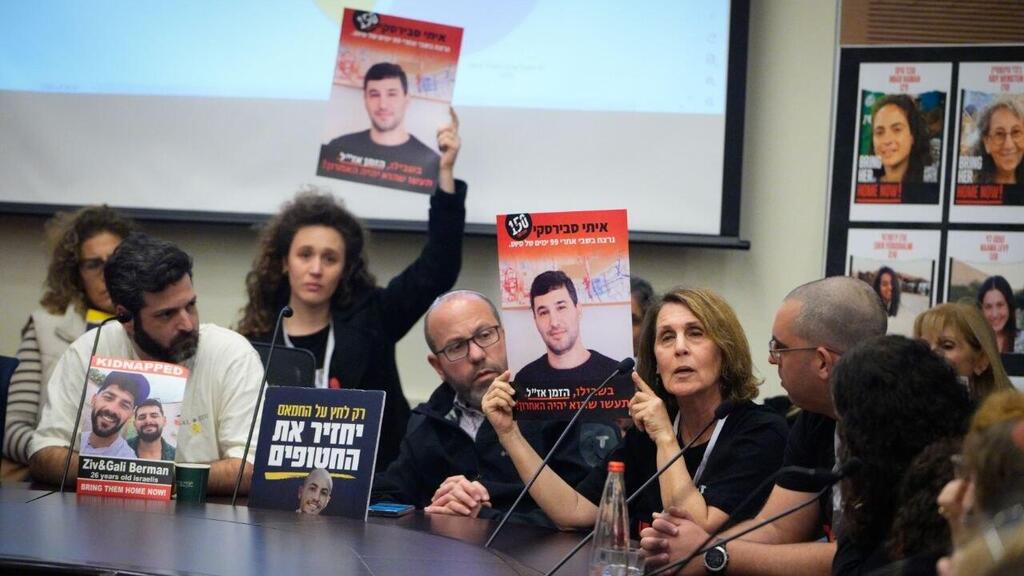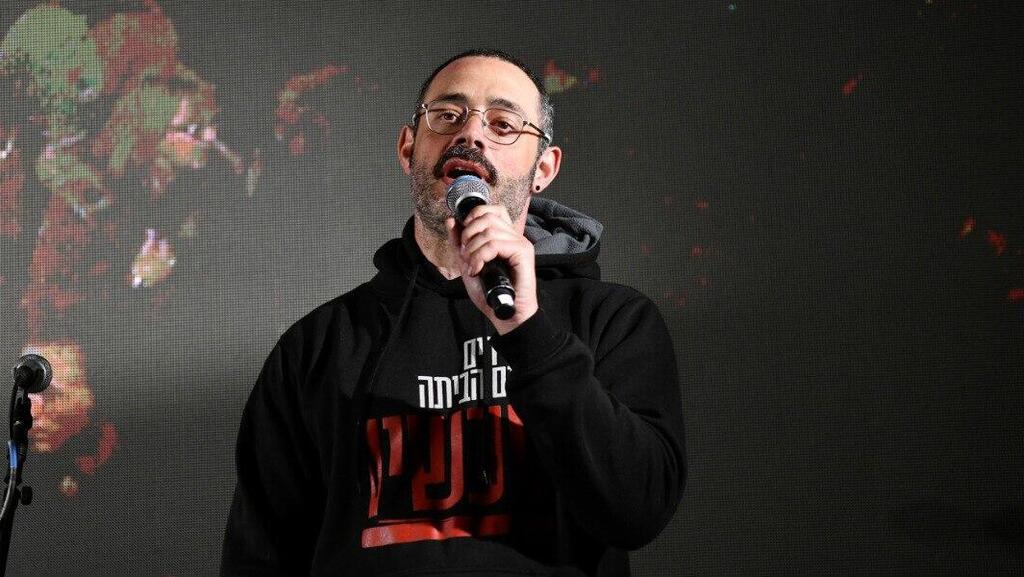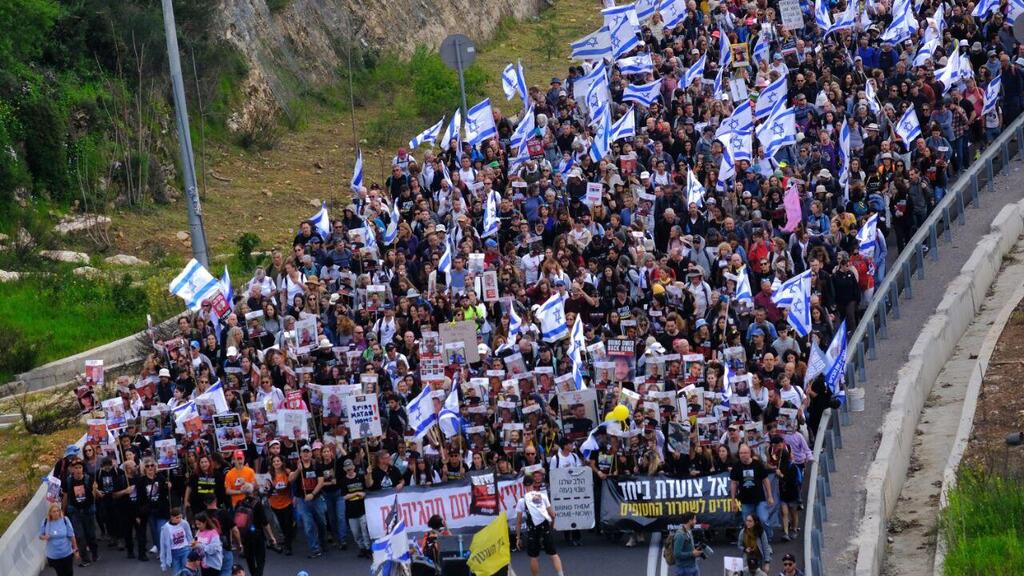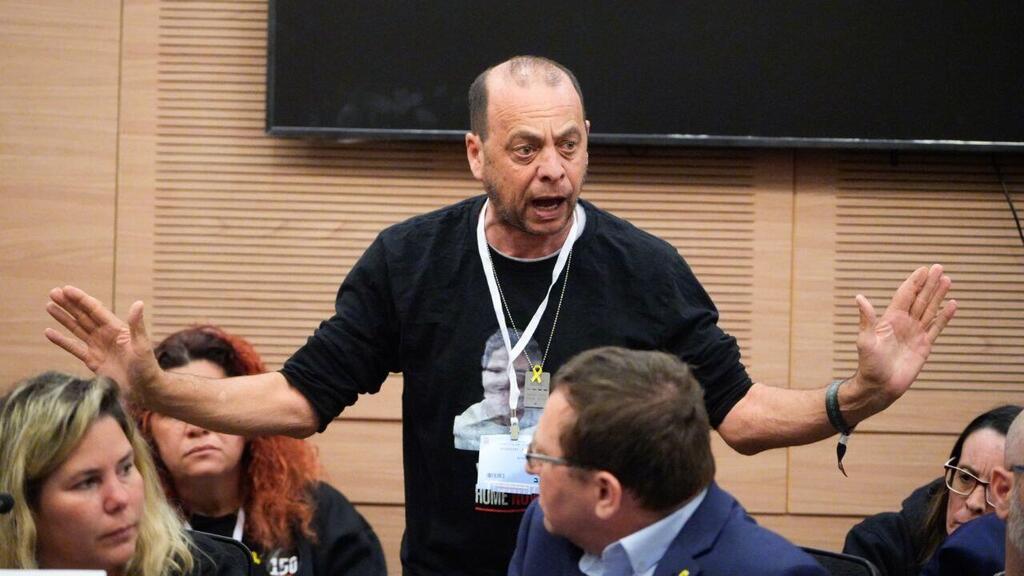The families of the 134 Israeli hostages who remain captive in Gaza were at the Knesset on Monday marking 150 days since their loved ones were abducted. They came to tell lawmakers, members of the parliament's Health Committee, that their own medical and emotional situations are dire, and that the government and its ministries are not responding to their needs.
More stories:
"150 days and not one representative of the government of Israel has called or spoken to me," Nisan Kalderon, whose brother Ofer is being held by Hamas, said. "I said two weeks ago that I would kill myself because I am suffocating. I don't eat, I am going crazy and cannot sleep. I take sleeping pills," he said.
4 View gallery


Members of the families of hostages at the Knesset Health Committee on Monday speaking about the neglect they feel
(Photo: Shalev Shalom)
Speaking of his difficulties Kalderon said he never received one call from an official to check on him. "Are you alive? Do you need help? That is all that was needed. One call. At the time of elections we are inundated with text messages," he said.
His wife, who was in tears, added that she alone stopped him from killing himself. "Who was there with me when I had to stop my husband on the 12th floor? Who was there? I stopped him from jumping."
Lea Yanai whose sister, Moran Stella, was released in the November prisoner exchange, said the family has fallen apart. "I am not being cared for. I am 43 and my sister is 40. My kids are 7 and 9. My daughter is recovering from cancer. Why are they not being treated?" she asked. "If I have lost income and must care for us and hear what my sister is telling me, then I have no time to deal with my own emotional state. I too considered taking my life."
Osnat, whose nephew Itai Svirski was murdered in captivity, said the families have been deserted. "We are bereaved families, abducted, evacuated, take your pick. My mother's house was used as a command post by Hamas. Her caregiver was murdered, my sister and brother-in-law were murdered, Itai was murdered," she said.
"I haven't worked for five months. No one has reached out to me. Because I am trained in mental health, I knew to seek help. I am paying for it out of my own pocket. Some 500 shekels a session with a professional I can trust," she told Knesset lawmakers.
4 View gallery


Chen Avigdori whose wife and daughter were released from Hamas captivity speaks at a rally calling for hostages to be freed
(Photo: Rafi Kotz)
Chen Avigdori, whose wife and daughter were among the hostages freed in the last hostage exchange, spoke of the difficulties he is still experiencing. "I am speaking about myself. Sleep disorder – check, giving up a healthy lifestyle – check, I am smoking more cigarettes and grass. I've lost 8 kilos (17 lbs.) and have not seen a doctor. I have lost the ability to work. Everything you have seen - I have experienced and I am a father and husband who waited to see them released. This is too big for you. It's the bureaucracy. Something else must be done," he said.
The Knesset committee members also heard from professionals. Professor Hagai Levin, who heads medical assistance for the families of the hostages, said he treated a woman during the march to Jerusalem late last week. Her son is being held hostage. She collapsed during the march and when he attempted to treat her, she said her health was irrelevant and that only her son was important. "It is our job to ensure that she too is important," he said.
"We can only imagine what being the mother, father, sister or brother of a hostage, means. What being an uncle or grandparent of someone in captivity mean, and what does 150 days mean? This is not just the mental anguish but also the direct impact on physical and mental health in the immediate and distant future," he said.
4 View gallery


A march to Jerusalem calling for the release of hostages held in Gaza
(Photo: Alex Kolomoisky)
According to data provided by the Maccabi Health Maintenance Organization, 80% of the families reported a deterioration in their health. Some 21% said they lost weight, 10 times more than the general public. And 14% said they were using sleeping pills.
The data also showed that 62% of the families of hostages defined their health condition as mediocre or bad, compared to 15% before the war. 88% reported a deterioration in their eating habits. Even among volunteers working with the families, emotional health had deteriorated and now 70% of them say they are either doing moderately well or badly.




